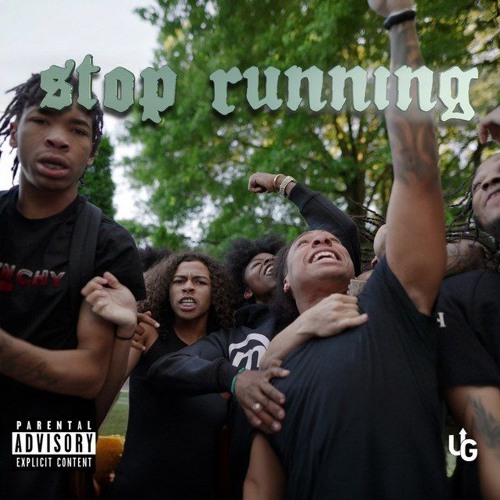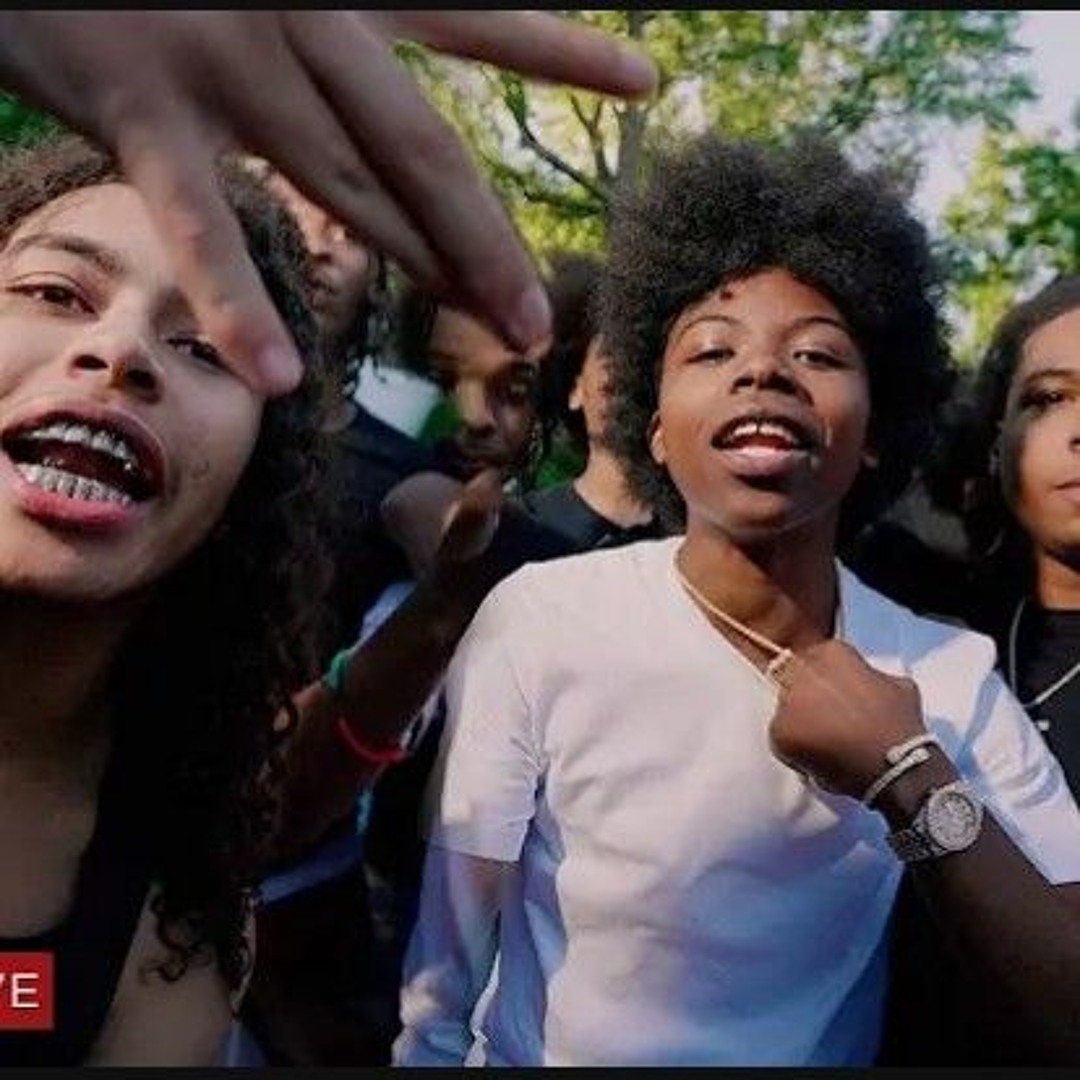Viral TikTok: Stop Running Woo Lotti Video - The Controversy!
Why is a snippet of a young mans final moments the subject of viral fascination? The disturbing trend of circulating the "stop running woo lotti" video highlights a troubling intersection of social media, violence, and desensitization, demanding a critical examination of our online culture.
The digital world is currently grappling with the fallout from the widespread dissemination of a video allegedly depicting the final moments of Woo Lotti, a rising figure in the New York rap scene. The footage, purportedly capturing the events leading up to his fatal stabbing in April 2020, has sparked outrage and concern, prompting authorities and online communities to urge a halt to its circulation.
The incident, which reportedly occurred on a Sunday evening in the East Village, has ignited a firestorm across various social media platforms, most notably TikTok and Twitter. Users are encountering snippets and full versions of the video, often accompanied by sensationalized captions and hashtags like #woolotti, #lottiboppin, and #dontrundonttrip. This viral spread raises serious ethical questions about the boundaries of online content and the potential for vicarious trauma.
- Alyx Star Age Wiki Height The Ultimate Guide To Her Life Career And More
- New Ullu Web Series Your Ultimate Guide To The Latest Buzz
| Category | Information |
|---|---|
| Real Name | Unknown |
| Stage Name | Woo Lotti |
| Date of Death | April 2020 |
| Cause of Death | Stabbing |
| Location of Incident | East Village, New York City |
| Occupation | Rapper (Rising Star) |
| Genre | Drill Music |
| Associated Acts | Bloodie, DudeyLo, DD Osama, Sugarhill Ddot, Dee Play4Keeps |
| Known For | Viral "Stop Running Woo Lotti" video, Drill Music |
| Online Presence | TikTok (various fan accounts), YouTube (music), Twitter (discussions) |
| Reference Link | Complex.com |
The online frenzy surrounding the "stop running woo lotti" video underscores the darker side of viral content. The relentless sharing and consumption of such material contribute to a culture where tragedy becomes entertainment, and the victim's humanity is often overshadowed by the spectacle. The call to stop the spread of the video highlights the need for greater responsibility and ethical considerations within online communities.
TikTok, in particular, has become a breeding ground for the circulation of the video. Accounts like @nycgta, rep_killaz, and @lilezzy52 have been identified as sources sharing the footage, often with captions designed to maximize engagement. The app's algorithm, designed to prioritize trending content, inadvertently amplifies the reach of these disturbing videos, making it challenging to contain their spread. The platform's hashtag system further exacerbates the problem, allowing users to easily discover and share the content.
The lyrics and themes within Woo Lotti's music, and the broader drill scene, have also come under scrutiny in the wake of the video's virality. Some argue that the genre's often-violent and confrontational lyrics contribute to a culture of desensitization, while others maintain that it's a reflection of the realities faced by many young people in marginalized communities. The debate underscores the complex relationship between art, social context, and the potential for real-world impact.
- Vegamovies In Hindi Dubbed Your Ultimate Guide To Streaming Bollywood Thrills
- Filmyflynet Hollywood Your Ultimate Guide To Streaming Hollywood Movies
The song "Stop Running," featuring Bloodie, DudeyLo, DD Osama, Sugarhill Ddot, and Dee Play4Keeps, has gained renewed attention in the wake of the video's circulation. The song's title, taken directly from the alleged cries heard in the footage, adds another layer of complexity to the situation. While the song was likely released before the incident, its connection to the viral video further fuels the controversy and raises questions about the ethics of profiting from tragedy.
The response to the "stop running woo lotti" video extends beyond mere calls for its removal. Some online commentators, particularly within the Bronxghanistan community on platforms like Reddit, are engaging in discussions about the broader implications of the video's virality. They are examining the role of social media in perpetuating violence, the ethics of sharing such content, and the potential harm it inflicts on the victim's family and friends.
The widespread circulation of the video has also sparked debate about the responsibility of social media platforms to moderate and regulate content. While platforms like TikTok and Twitter have policies against graphic violence and incitement, the sheer volume of content makes it challenging to effectively enforce these rules. The incident highlights the need for more robust moderation strategies, including proactive detection and removal of harmful content, as well as greater transparency and accountability.
The audio clip, "stop run in woo lotto," has also gained traction on platforms like TikTok, further demonstrating the disturbing fascination with the tragedy. The sound effect, created by a user named rep, has been shared and played thousands of times, highlighting the normalization and trivialization of violence within online spaces. This trend underscores the need for greater media literacy and critical thinking skills among young people, enabling them to better understand the ethical implications of their online behavior.
The authorities' plea to stop running the Woo Lotti footage underscores the severity of the situation. The continued circulation of the video not only perpetuates trauma for the victim's loved ones but also risks inciting further violence and desensitizing viewers to the realities of street crime. The call for restraint reflects a growing awareness of the potential harm caused by the unchecked spread of graphic content online.
The incident also raises questions about the potential legal ramifications of sharing the video. Depending on the specific content and local laws, individuals who share the footage could face charges related to inciting violence, harassment, or the dissemination of harmful material. This legal ambiguity highlights the need for greater clarity and awareness regarding online liability.
The discussion surrounding the "stop running woo lotti" video extends beyond the immediate incident, encompassing broader conversations about social media ethics, online responsibility, and the desensitization of violence. The tragedy serves as a stark reminder of the potential harm caused by the unchecked spread of graphic content and the need for greater critical thinking and empathy within online communities.
The online frenzy surrounding the "stop running woo lotti" video has also ignited debates within the music industry. Some critics argue that the drill music scene, known for its often-violent lyrics and imagery, has contributed to a culture of desensitization that normalizes violence. Others defend the genre as a form of artistic expression that reflects the realities faced by marginalized communities. The debate highlights the complex relationship between art, social context, and the potential for real-world impact.
The viral spread of the "stop running woo lotti" video has prompted discussions about the role of algorithms in amplifying harmful content. Social media platforms rely on algorithms to curate content and personalize user experiences. However, these algorithms can also inadvertently promote sensationalized and graphic content, leading to its widespread dissemination. This raises questions about the ethical responsibility of social media companies to ensure that their algorithms are not contributing to the spread of harmful material.
The incident has also highlighted the need for greater mental health support for individuals who are exposed to graphic content online. Witnessing violence, even vicariously, can have a significant impact on mental well-being. The widespread circulation of the "stop running woo lotti" video underscores the importance of providing resources and support for individuals who may be struggling with the emotional consequences of online exposure to violence.
The "stop running woo lotti" video has become a focal point for broader discussions about online ethics, social responsibility, and the impact of social media on society. The tragedy serves as a call to action for individuals, social media platforms, and policymakers to address the challenges of online content moderation and promote a more responsible and ethical online culture.
Beyond the ethical considerations, the virality of the "stop running woo lotti" video underscores the voyeuristic tendencies that can pervade online spaces. The desire to witness and share shocking or disturbing content, often without considering the impact on victims and their families, highlights a troubling aspect of human behavior in the digital age. This raises questions about the psychological factors that drive this voyeurism and the potential for online communities to foster a culture of empathy and respect.
The conversations surrounding the "stop running woo lotti" video have also extended to discussions about the role of journalism and media reporting in covering violent incidents. Some critics argue that sensationalized reporting and the dissemination of graphic images can contribute to the normalization of violence and the retraumatization of victims. This raises questions about the ethical responsibilities of journalists and media outlets to balance the public's right to know with the need to protect the privacy and dignity of those affected by violence.
The "stop running woo lotti" video has become a symbol of the challenges and complexities of navigating the digital age. The tragedy serves as a reminder of the potential harm caused by the unchecked spread of graphic content and the need for greater critical thinking, empathy, and social responsibility within online communities. The incident calls for a collective effort to promote a more ethical and humane online culture.
In the wake of the "stop running woo lotti" video's virality, some organizations and activists are advocating for greater media literacy education, particularly among young people. By teaching individuals how to critically evaluate online content, identify misinformation, and understand the ethical implications of their online behavior, these programs aim to empower them to become more responsible digital citizens. This approach emphasizes the importance of equipping individuals with the skills and knowledge necessary to navigate the complexities of the digital world.
The discussions surrounding the "stop running woo lotti" video have also highlighted the need for greater collaboration between social media platforms, law enforcement agencies, and community organizations to address the issue of online violence. By working together, these entities can develop more effective strategies for identifying, removing, and preventing the spread of harmful content. This collaborative approach recognizes that addressing the challenges of online violence requires a multi-faceted and coordinated effort.
The "stop running woo lotti" video has served as a catalyst for broader conversations about the need for greater social and economic opportunities for young people in marginalized communities. By addressing the root causes of violence, such as poverty, lack of education, and limited access to resources, these initiatives aim to create a more equitable and just society, where young people have the opportunity to thrive and achieve their full potential. This holistic approach recognizes that addressing online violence requires addressing the underlying social and economic factors that contribute to it.
The continued circulation of the "stop running woo lotti" video serves as a stark reminder of the ongoing challenges of creating a safe and ethical online environment. The tragedy underscores the need for a renewed commitment to promoting critical thinking, empathy, and social responsibility within online communities. It calls for a collective effort to address the challenges of online violence and create a more humane and just digital world.
- Movies4u Hindi The Ultimate Destination For Bollywood Enthusiasts
- Masa49com Your Gateway To Innovative Solutions

Stream STOP RUNNING WOO LOTTI (feat. DD Osama & DudeyLo & DeePlay4Keeps

The Intriguing Story Behind The "Woo Lotti Stop Running Video"

Stream Stop Running Woo Lotti DD Osama x Dudeylo x DeePlay4Keeps x